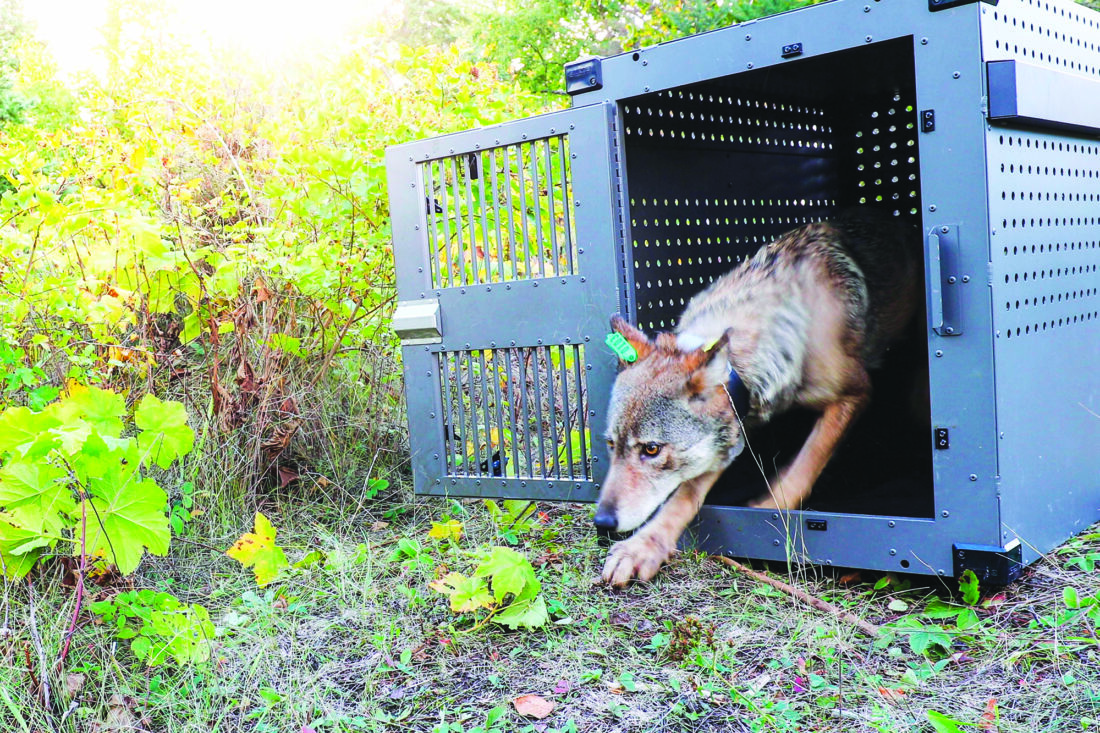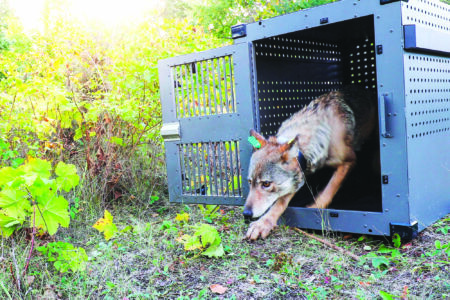Wolf lethally removed from Isle Royale
Animal describe as foo-conditioned

This Sept. 26, 2018, file photo provided by the National Park Service shows a 4-year-old female gray wolf emerging from her cage at Isle Royale National Park. National Park Service personnel lethally removed a wolf from the island earlier this month.
HOUGHTON – Throughout June and July, park managers at Isle Royale National Park became concerned with the activities of at least two wolves that were known to have obtained human food at campgrounds on multiple occasions. According to a National Park Service press release, the wolves were repeatedly sighted in campgrounds and developed areas, “exhibiting signs of habituation and a reliance on human food sources.”
For example the release states wolves were seen dragging away food storage bags and backpacks at numerous campsites. Despite proactive management efforts, including aversive conditioning, changes in waste management practices and implementation of food storage regulations, these wolves continued to display escalating boldness around visitors, campsites, and staff housing areas.
Earlier this month, National Park Service personnel took “lethal measures” to control one of the problem wolves due to the escalating number of concerning incidents reported by park visitors. In the release, Liz Valencia, supervisory park ranger, said “After extensive monitoring and attempts at deterrence, and in consultation with state, federal and tribal agencies, the difficult decision to lethally remove this wolf was made. Park personnel will continue to track wolf/human interactions and remove additional wolves only if necessary.”
Isle Royale Superintendent, Denice Swanke, noted, “Our priority remains the safety of park visitors and staff, and the protection of wildlife in their natural state, including our objective to maintain a wild wolf population. While lethal removal is deeply unfortunate, it became necessary due to a growing public safety risk. All who appreciate and enjoy Isle Royale National Park need to understand the importance of adherence and vigilance to food storage regulations and our collective role in minimizing negative human-wildlife interactions”.





